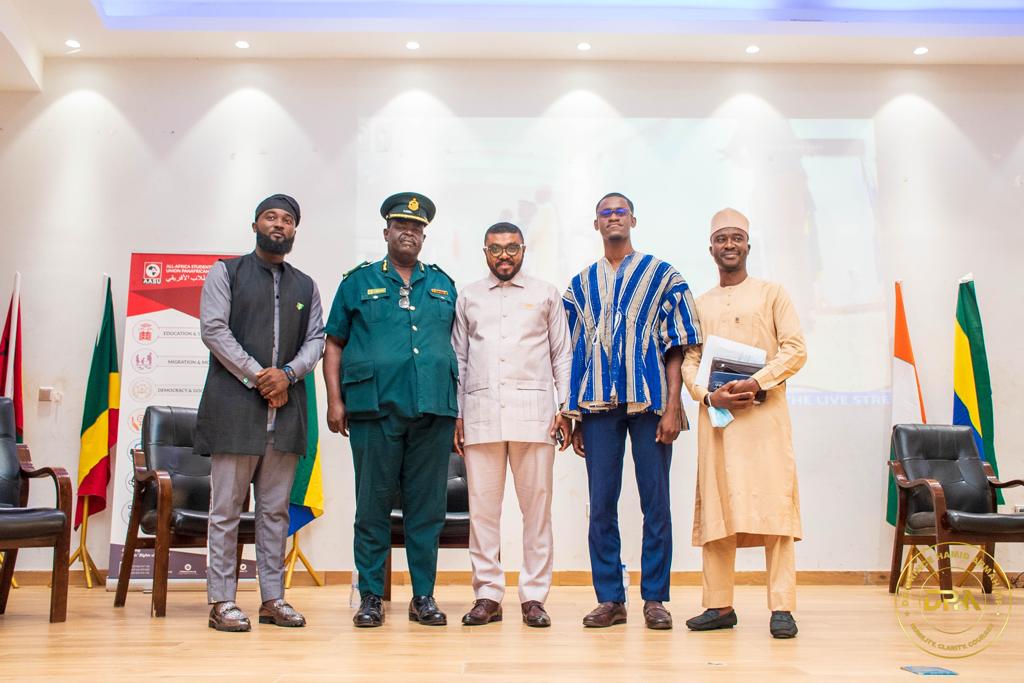President Muhammadu Buhari has called for collaborative partnerships that will build a framework of ideas to transform education systems globally.
Buhari spoke on Monday during Nigeria’s statement at the Transforming Education Summit (leaders’ roundtable) held on the sidelines of the 77th session of the UN General Assembly.
“In transforming education, we must not erect boundaries. Where they exist, we must eliminate them, because we have a lot to learn from each other,” he said.
“As we know, improving equitable and inclusive access to quality educational opportunities is essential to ensure the full development of our societies.
“No country can grow beyond the capacity of its education system.”
Buhari said it would be difficult to have a meaningful conversation about transforming national education systems without transforming the teaching profession.
He therefore called for more deliberations on efforts to expand innovations and research on teacher education and teacher professional development.
“The process of building a sustainable teacher supply chain to address the challenges of teacher shortage is important and calls for global action,” he said.
“Nigeria also wishes to reiterate the need for all Member States and stakeholders to address systemic and structural issues that impede access to quality education.
“Only when we do this can we create a world truly worthy of all, and where no one is left behind.”
According to Buhari, the use of information technology as a teaching tool promises to transform and erase the boundaries of learning and to reorganize the way learning occurs inside and outside. outside the classroom.
He expressed optimism that bridging the digital divide would provide Nigeria with opportunities to expand learning and transform the education system.
“Nigeria is rebuilding trust with its people, to provide a safe learning environment and responsive services. This is why we were among the first to endorse the Safe Schools Declaration (SSD), while developing a national policy on safe and secure schools,” he added.
“Nigeria also hosted the 4th Safe Schools Declaration (SSD) International Conference in partnership with the African Union, Norway, Spain, Argentina and the Global Coalition to Protect Education from attacks (GCPEA) in 2021.”
He said the implementation of the SSD has offered an avenue to address school safety in a broader context that now includes gender-based violence and the protection of girls from risks that contribute to insecurity and poverty. violence.
He said: “While this is a step forward in promoting girls’ well-being and ensuring they stay in school and learn, there are still many grounds to cover.”
“NIGERIA COMMITTED TO ENHANCING LEARNING”
Furthermore, Buhari said Nigeria has also demonstrated its commitment to boosting learning outcomes and accelerating skills development by implementing cash transfer programs.
He said the Nigerian government has earmarked special statutory funds for universal basic education and special programs, prioritizing scaling up play-based early childhood education, as well as basic literacy and numeracy programs.
“I am pleased to announce Nigeria’s participation in the Education System Analysis Program (PASEC 2024), complementing ongoing efforts to institutionalize national and school assessment. This requires significant investment in schools and teacher training,” he said.
“This has informed Nigeria to launch a new National Teaching Policy to address the career path, remuneration and general welfare of our teachers.
“We are now prioritizing the full implementation of the Professional Education Standards and Teacher Qualifications Framework while improving their recruitment, deployment and management.
“We will give schools the resources to truly transform teaching and learning, because we understand that efforts to improve the quality of education provision and learning outcomes are underpinned by the understanding that learners, teachers and school leaders are the main actors in education reforms.
Meanwhile, the Academic Staff Union of Universities (ASUU) is currently on strike over the government’s failure to meet its demands, which border on funding higher education institutions and revising teachers’ salaries and allowances. .



